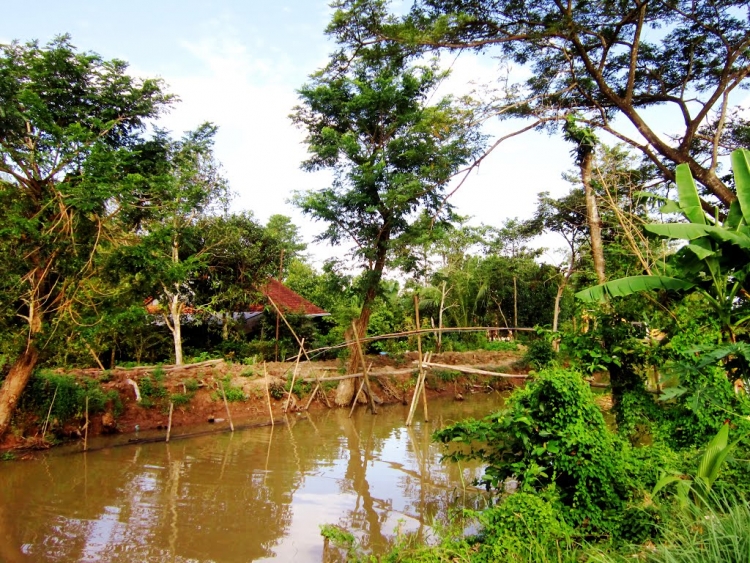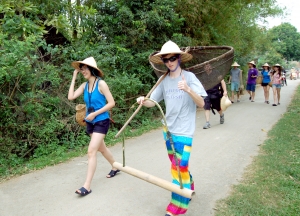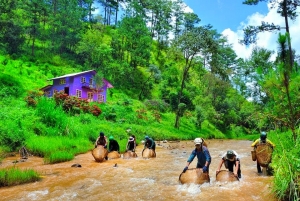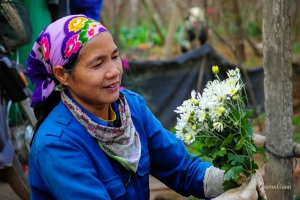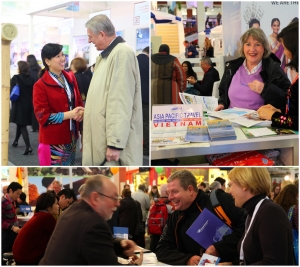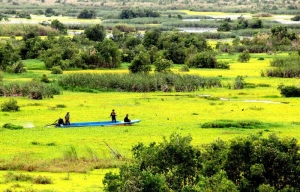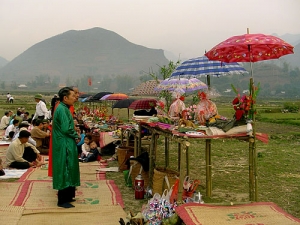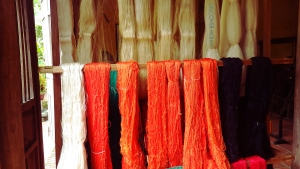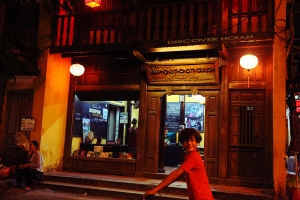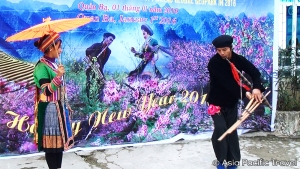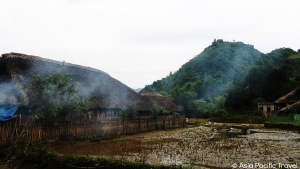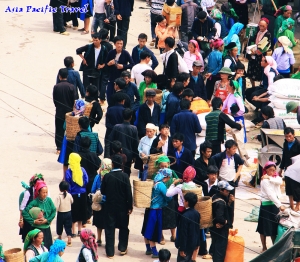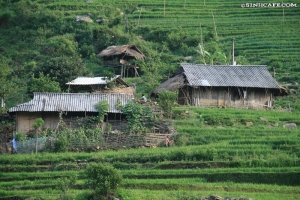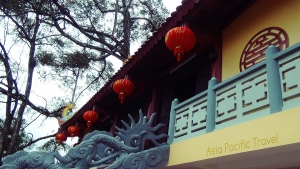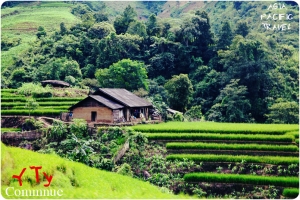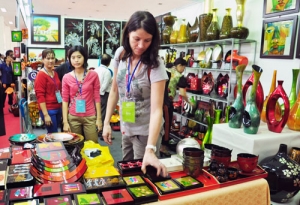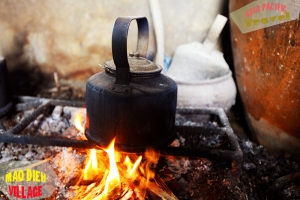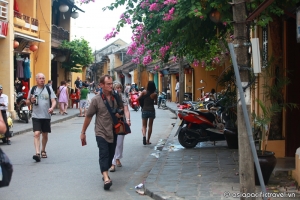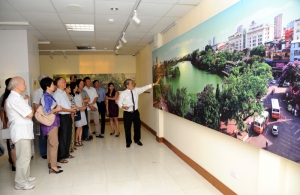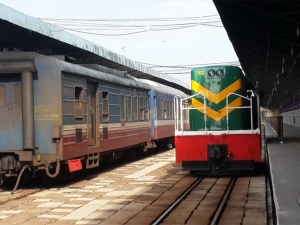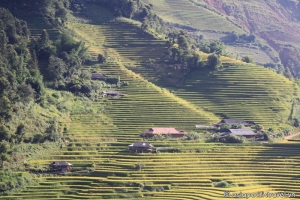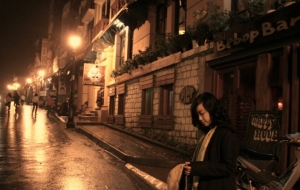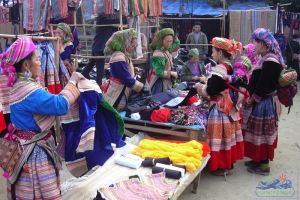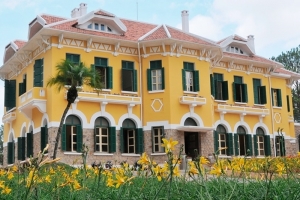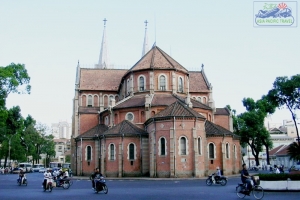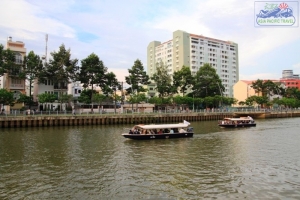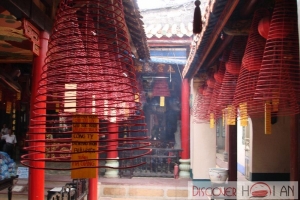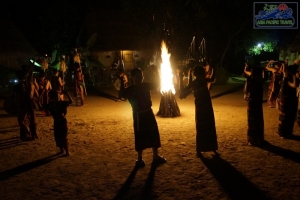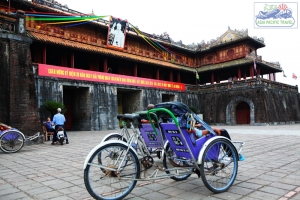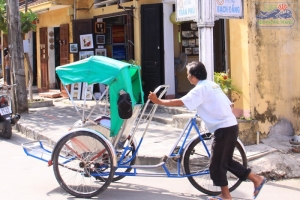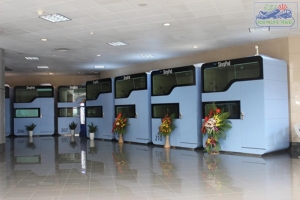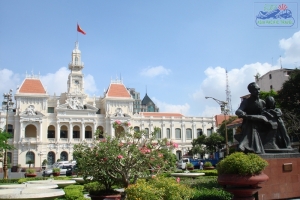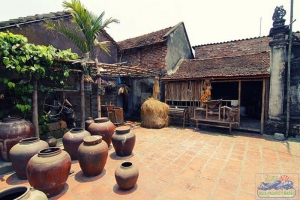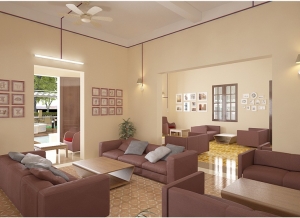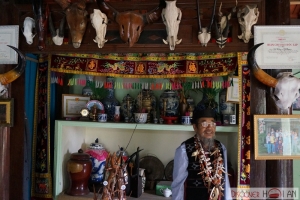FEW FOREIGNERS CARE TO VENTURE OUT TO WHERE THE ROADS NARROW TO NOTHING AND LIFE TAKES ON A COMPLETELY DIFFERENT HUE
The majority of Vietnam’s expatriate community live in one of the country’s three largest cities – Hanoi, HCMC, or Danang. They are generally only rarely exposed to the smaller villages that lie in between, where the roads are often shoddily paved, there are no indoor dining venues, and ear-splittingly loud traditional music blares distortedly from roadside “cafes”. Many may think these villages are as backwards and “small-town” as civilized Vietnam gets, but there is a whole world of rural life that often passes under the radar of expats: the giant network of hamlets, extremely small and secluded communes that make up a large part of Vietnam’s countryside and account for a huge percentage of the Vietnamese provincial community.
I had a chance to experience one of the communities firsthand several weeks ago. I was visiting my friend, Thanh, in the small town of Hoa An in the Mekong Delta’s An Giang province. This morning I visited happened to fall on the same day as Thanh’s friend’s birthday celebration, and she asked me if I wanted to accompany her to the party. Her friend, she told me, lives in the small hamlet of Xeo Tram, which is technically part of the village but which is secluded from the larger community.
We set out from Thanh’s house that afternoon on a motorbike, we waved through the greenery-lined streets of Hoa An. The road in centre of the village was bumpy and full of potholes, but as we rode further out the concrete became even worse. Eventually the road ceased to be paved at all, and we were riding on a dusty ad, oftentimes, muddy trail. After several more minutes we reached the entrance to the hamlet. One could easily tell where the hamlet actually began because the two-way dirt road we had been driving on turned into a clay path only wide enough for two people and barely two motorbikes, but certainly not a car.

As we rode slowly along, squeezing past a group of little girls on bicycles, I could not help but admire the hamlet’s quaint and bucolic beauty, although Xeo Tram is one of the poorer hamlets in Vietnam. On either side of the path the sun beat down on the dry scrubland the hamlet was built on, and obviously impoverished thatched roof houses lay on either side of the path every 15 metres or so. Small fenced-in areas containing pigs, chickens, and other livestock jutted out from behind many of the houses.
There were no stands selling cigarettes or small food items like those that little footpaths of many towns in Vietnam, nor were there any inns or other businesses of any kind; the hamlet was purely residential. It seemed that the only form of entertainment for the residents of the hamlet was socializing with neighbours, an idea confirmed by the fact that many of the shaded concrete areas in front of the houses were filled by groups of three to ten people. They were sitting on the ground or lounging in hammocks, laughing and taking in spirited Vietnamese while sipping iced tea. Thanh told me many of the people had rarely left the hamlet and very likely have seen a foreigner before, which explained why I was started at intently by every eye we passed.
The path split off into any avenues, which I guessed would be home to more of the same I had observed on the hamlet’s main street. The hamlet was small – I would later find out it contained only 252 people – and we reached our destination very quickly. Like we had seen in front of some of the other houses in the hamlet, the gathering was a casual affair. Because it was somewhat of a special occasion, there were several plastic tables set out, and the attendees sat on the ground around the tables. Thanh and I took seat at one of the tables next to a slim middle-aged man with green-tinged teeth and piercingly black eyes who was wearing a matching T-shirt and slacks outfit reminiscent of a nurse’s scrubs. The other guests did not know any English – I think Thanh and I were the only ones within a three mile radius who did – but after the initial awkwardnessof not being able to communicate with anyone but Thanh wore off I began to greatly enjoy the laid-back and neighbourly atmosphere of the party.
I was fascinated by the secluded and isolated nature of the hamlet, and I asked the man – with help of Thanh’s translation – how, if at all, the town kept in touch with current events and other news from outside the world. He told me that, although the hamlet does not have access to the internet, it receives newspaper, which are regularly distributed and contain valuable information that keeps the people of the hamlet informed. Families, who usually own televisions, also have access to several news stations.
The news channels available include for dedicated to international broadcast corporations, such as CNN, and 52 regional stations, which are more localised and only available in the provinces they are produced in. In many more developed areas, where people have access to a huge amount of news sources, the news is often ignored. To make sure this same phenomenon does not occur among the citizens of the hamlet, it employs someone to, once a day, walk around the paths of the hamlet with a loudspeaker and “broadcast” the news.
A loudspeaker that literally blares the news into residents’s homes is a method of news delivery that people cannot simple ignore. It is direct method of news delivery rather than a passive method such as a newspaper or even TV news, so it is a good way to ensure that all of the hamlet’s citizens have at least some worldly awareness. I was touched by this sentiment because, along with the other things I had observed in the hamlet that day, it reinforced the idea that the hamlet’s hamlet’s citizens take care of each other and their well-being. Unlike a typical Western society, in which there is a thin veneer of communal spirit covering the true impetus for most public action – looking out for Number 1 – the hamlet’s community seemed to be genuinely symbiotic.
My experience at the hamlet was strange, to be sure. I felt like an outsider because I was the onle Caucasian around and the only one who could not speak the common language. It was also an extremely enlightening experience. I had seen a side of Vietnam I, and many other expats, am not often exposed to, and I had been enchanted by the quaint and rustic beauty of the hamlet and its citizen’s mindset that money is not needed to create a functional and loving community.
The Guide




